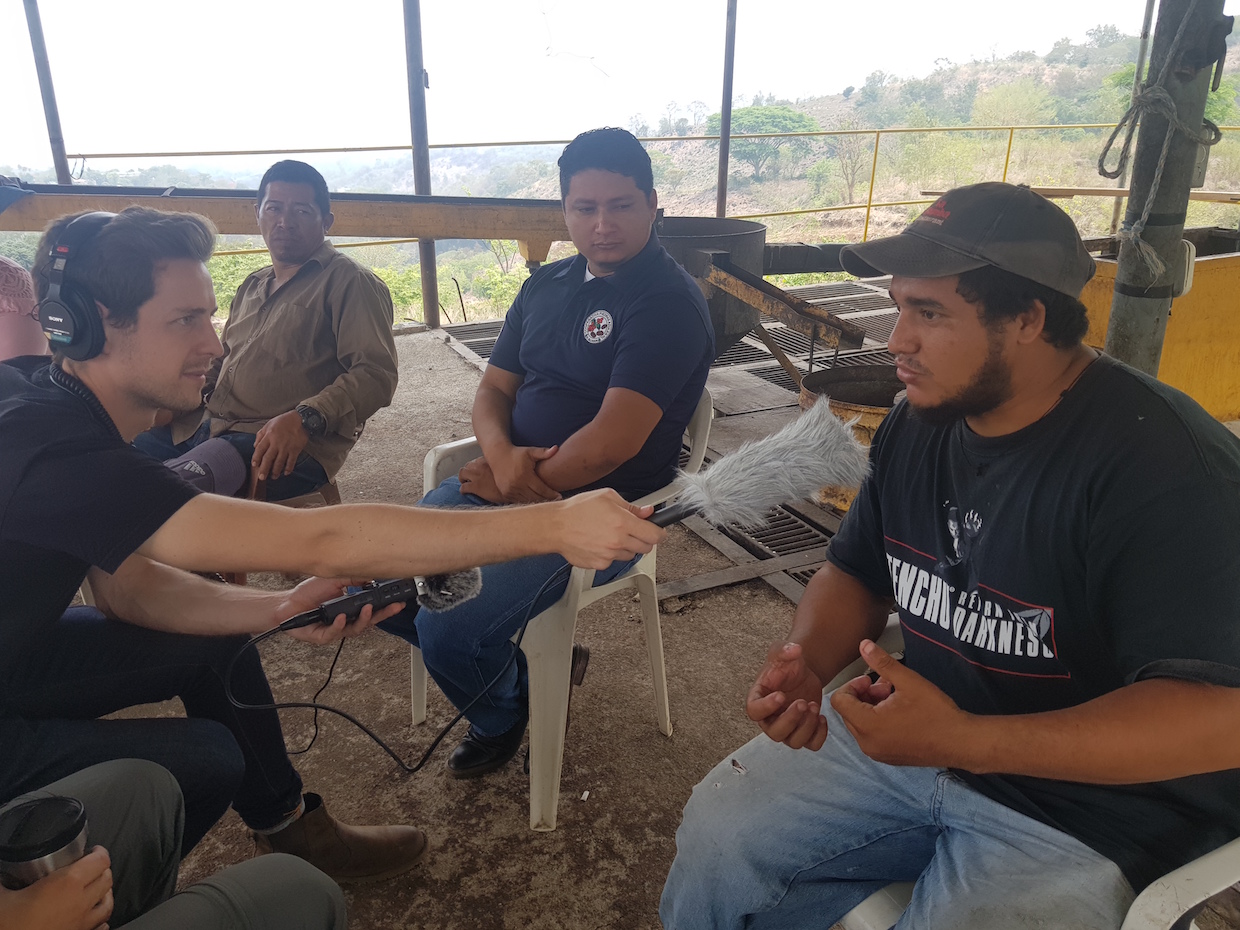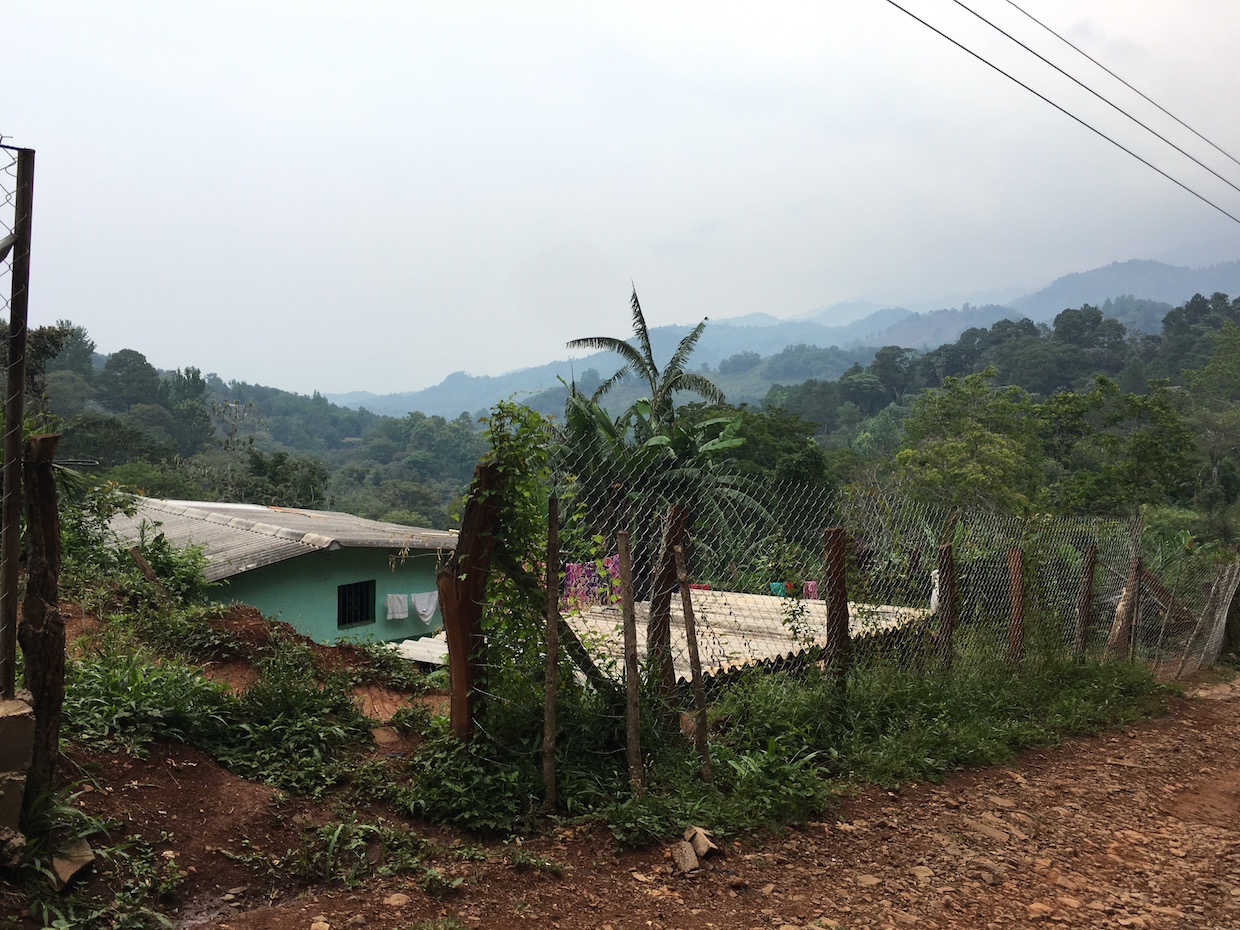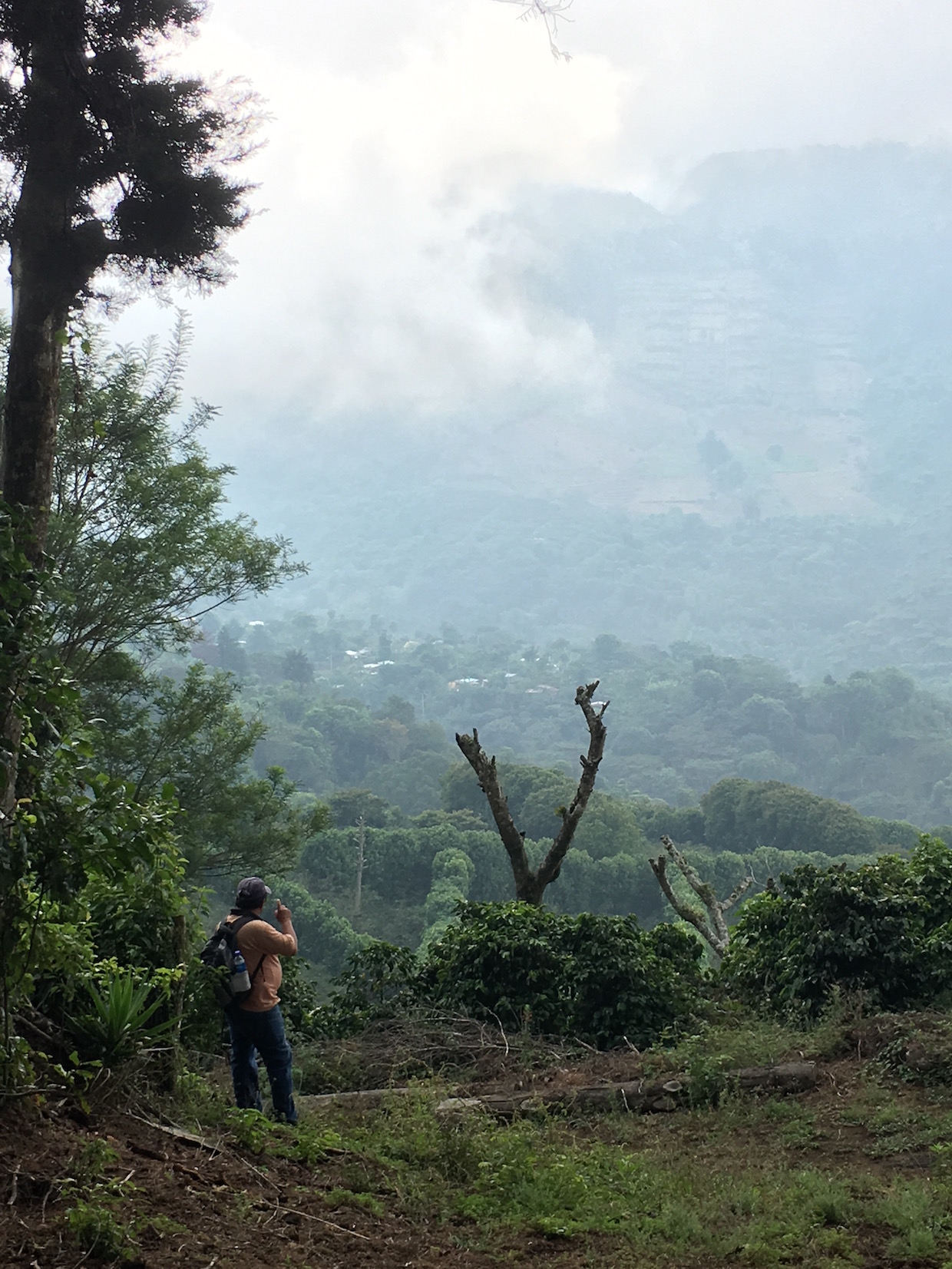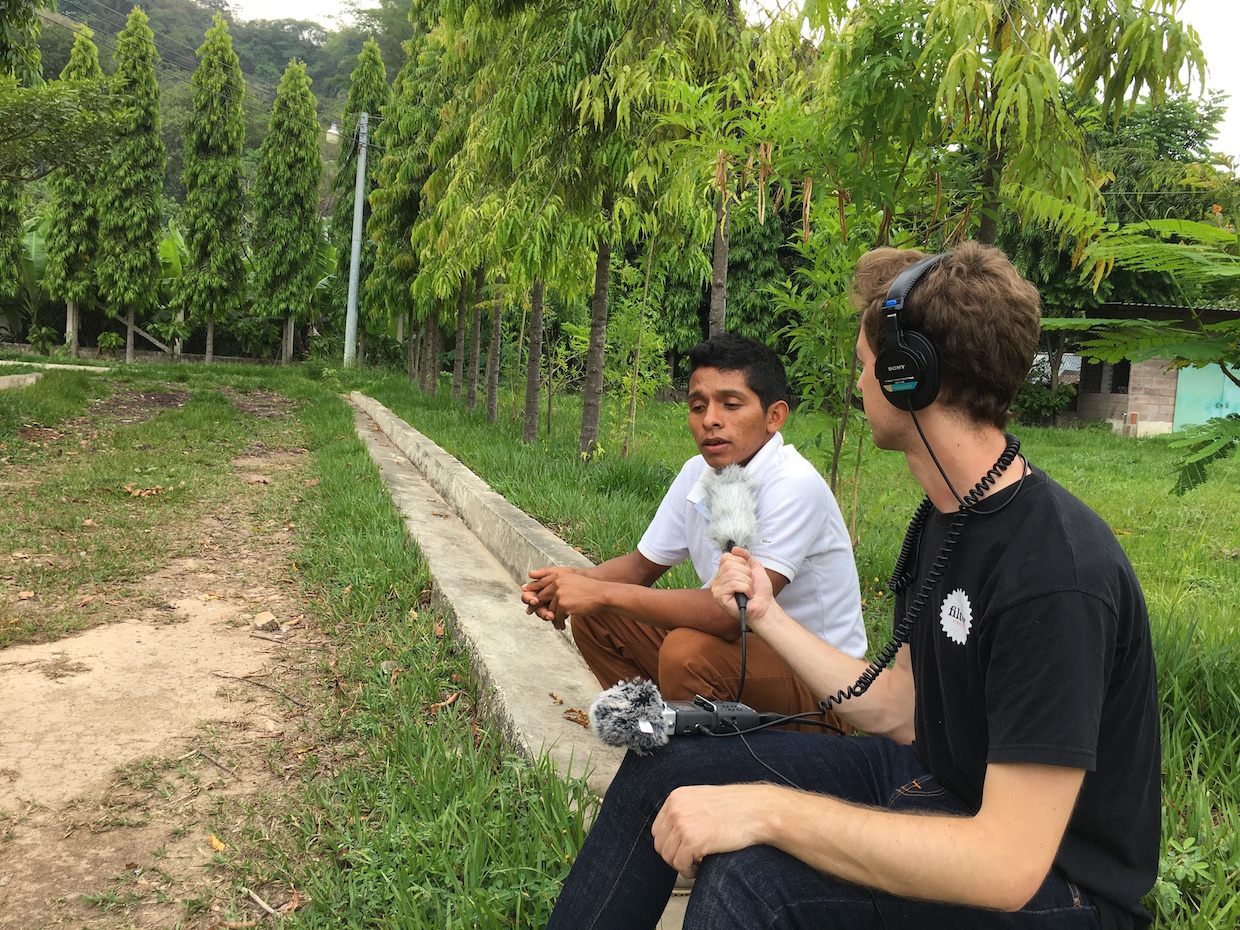
Filter Stories podcast and MarginalisedFarmers.org creator James Harper interviewing coffee farmers. All images courtesy of Filter Stories.
Coffee roasting and retail companies often take pride in sourcing green coffee directly from farmers, skipping intermediaries and paying responsible prices straight into the pockets of producers.
Yet for every individual farm or producer group that is able to tap into the specialty coffee market — and thereby reinvest in staffing, equipment, marketing and more — there may be dozens that don’t have the quality, connections and/or capital to participate.
In a perfect world, prices paid for all green coffee would meet or exceed costs of production and premiums would always be awarded for quality, yet in reality not all farms suffer equally in a grossly imbalanced, neocolonial trading system that leaves most struggling to stay afloat from year to year.
So, if a consumer wants to spend money specifically in support of smaller farms on the brink of collapse, where can they shop?
This is the question being asked and gradually answered by MarginalisedFarmers.org, a website created by journalist and podcaster James Harper, the creator and host of the podcast Filter Stories.
“The idea behind [the new website] came from a need to find a solution to the problem I discovered of historically marginal coffee farmers who weren’t getting a foothold into specialty coffee, one of the few financially sustainable avenues open to coffee farmers,” Harper told Daily Coffee News. “After investigating coffee supply chain issues for over two years, my listeners told me they wanted me to present them with solutions. They wanted to make a difference by spending their coffee dollars differently. The solution — a website listing roasters going above and beyond who support marginalized farmers — felt like the best way to empower the listeners of Filter Stories to make an impact, one coffee at a time.”
MarginalisedFarmers.org launched recently as a resource for consumers to find the companies that prioritize sourcing coffees from the farms more in need of support. It’s also a resource for the roasters seeking additional ways to market their products to concerned consumers, as well as to help all customers learn more about these issues. There is no cost to roasters for the listing. Harper pays for the entire project out of pocket and takes no cut of any sales.
“Some roasters offered me some free coffee, but I always refuse,” said Harper. “I want to pay for everything so I can maintain my editorial independence. The website earns nobody any money. I have no financial deals with anybody listed. I paid for all of this out of pocket because I believe in the cause. I’m motivated in getting the message out about marginalized farmers because I want to change this deeply unjust system. I don’t want to live in a world where marginal coffee producers have to choose between buying medicine for their children and a pane of glass for the window of their mud-brick house and a bag of fertilizer for a one-hectare coffee farm that is only going to lose them money.”
As for the veracity of the claims made by roasters on the list, Harper does his best to vet each company, although there are some limitations to being a one-person operation.
“I’m a journalist at heart and have the unenviable position of being constantly skeptical,” said Harper. “I don’t have the resources to investigate each roaster in-depth. But I do read their websites back to front, listen to interviews with the owners on podcasts, read interviews, and specifically look for concrete details.”
Harper is also in the awkward position of interacting regularly with people and organizations on all sides of the issue, including on the sides that contribute to the problem of marginalization. In his travels, Harper said he’s had many conversations with larger farmers on the topic of marginalization, and they are not easy.
“Running a coffee business is tough, even if you come from relative wealth,” said Harper. “The people who have wealth in coffee producing countries often had ancestors who were on the profitable side of colonization. From my experience, most larger farmers with strong links to Europe and North America don’t want to put their personal and farm stories in the context of historical wealth divides. It would mean having to acknowledge their wealth and success is a product of more than their hard work; they were on the winning side of a system that was hurtful to others.”
On occasion, Harper has come across larger farmers that make efforts to help nearby smaller farmers growing higher-quality coffee to access buyers. A future iteration of MarginalisedFarmers.org might celebrate those efforts.
Meanwhile, on the consuming side, many otherwise well-meaning specialty coffee roasters still prefer to partner with historically large and successful farms not just for their more consistent quality but because they are generally easier to work with, including for the multi-year commitments roasters often proudly promote.
“Many specialty roasters were suggested to me, but after a few minutes exploring their websites it became clear their ‘commitment to farmers’ was the fact they bought high-quality coffees and therefore paid higher prices,” said Harper. “Marginal farmers rarely have the option of producing and marketing high-quality coffees.”
While the quality issue is an insurmountable one for companies that focus on quality above all else, Harper suggests that others can widen their offerings to include coffees that support marginalized growers.
“Roast the beans a little darker; incorporate them into the house blend for milk coffees; sell them to customers who are less focused on quality, such as the office market,” said Harper. “What you miss out in terms of flavors, you gain in terms of a powerful marketing message: This coffee is helping marginal coffee farming families stay on their farms, helping their kids stay in school and keeping rural communities safe.”
Howard Bryman
Howard Bryman is the associate editor of Daily Coffee News by Roast Magazine. He is based in Portland, Oregon.









Comment